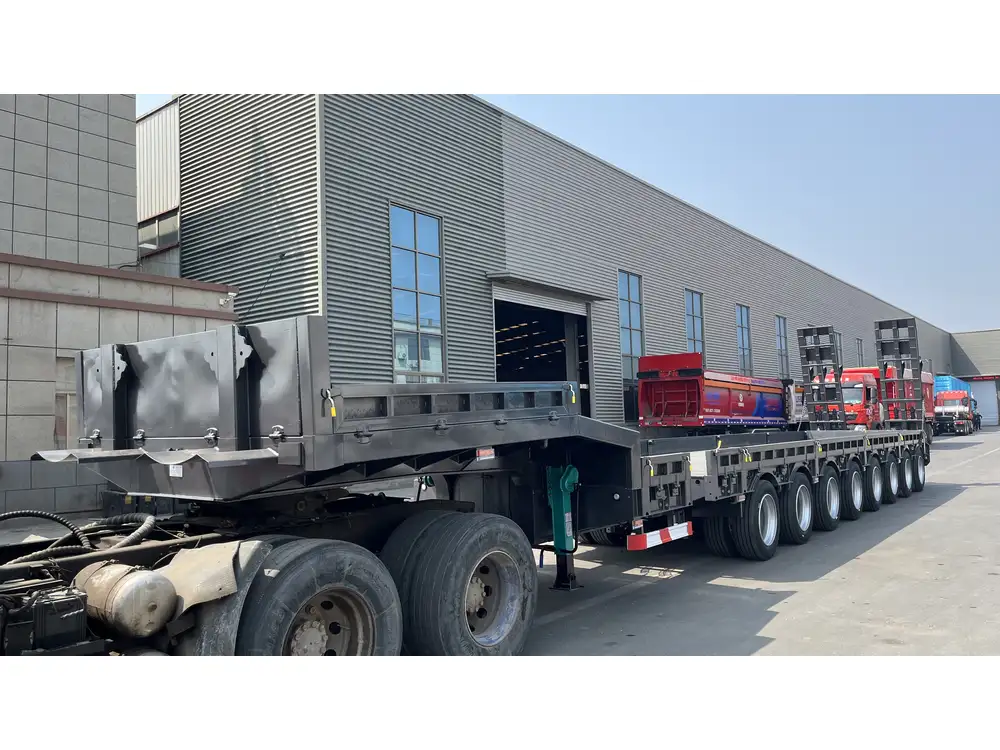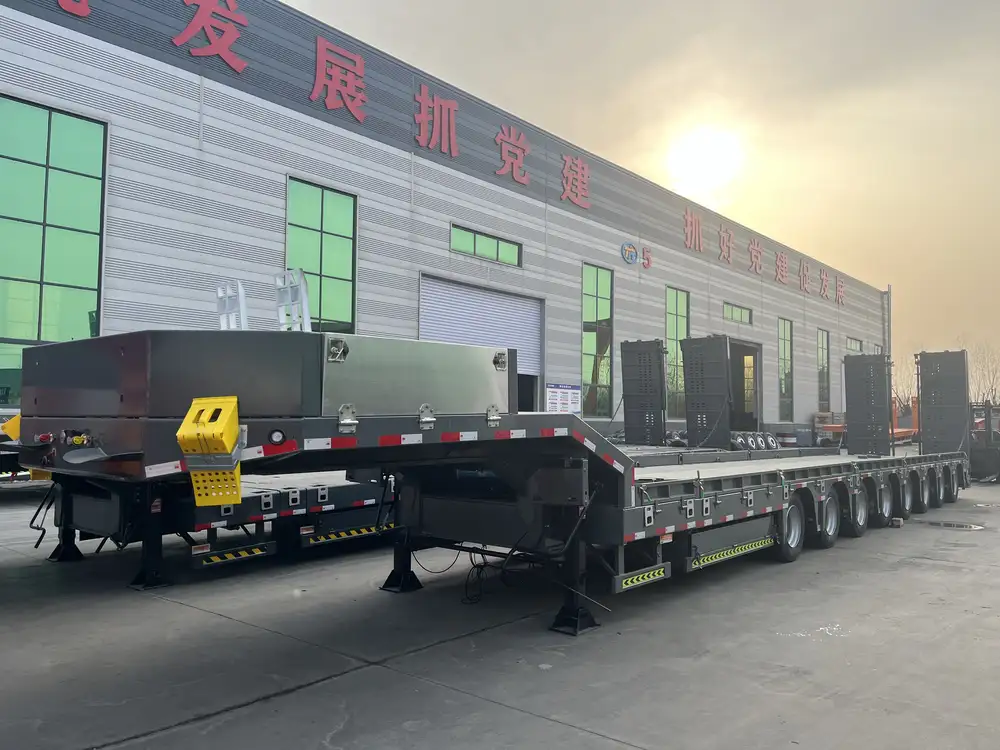When it comes to hauling cargo, flat bed trailers play a pivotal role in the transportation industry. Their design, functionality, and versatility make them a popular choice among businesses and individuals alike. One crucial factor to consider in the operation and selection of flat bed trailers is their weight. In this article, we will dissect the various aspects that influence flat bed trailer weights, offering insights that can help you make informed decisions whether you’re buying, renting, or figuring out load capacities.
The Basics of Flat Bed Trailers
What is a Flat Bed Trailer?
Flat bed trailers are unencumbered by side walls or a roof, providing a flat, open platform for transporting various types of cargo, from construction materials to vehicles. Their simplicity and ease of loading make them ideal for a multitude of applications.

Common Types of Flat Bed Trailers
| Type | Description | Common Use Cases |
|---|---|---|
| Standard Flat Bed | A basic platform without sides or a roof. | Construction materials, large equipment. |
| Step Deck | A two-level design that lowers load height. | Transporting taller cargo safely under height restrictions. |
| Drop Deck | Similar to step deck but with more load height. | Specialized cargo that exceeds standard load height. |
| Flat Bed with Ramps | Equipped with ramps for loading vehicles. | Transporting cars or machinery. |
How Much Does a Flat Bed Trailer Weigh?
Average Weight Ranges
The weight of a flat bed trailer can vary significantly based on its size, construction materials, and design features. On average, flat bed trailers weigh between 4,000 to 8,000 pounds. Below, we will break down weight categories further:
| Trailer Size (ft) | Average Weight (lbs) | Typical Capacity (lbs) |
|---|---|---|
| 20 | 4,000 – 5,000 | 20,000 – 30,000 |
| 24 | 5,000 – 6,500 | 25,000 – 35,000 |
| 28 | 6,000 – 7,500 | 30,000 – 40,000 |
| 32 | 7,000 – 8,000 | 35,000 – 50,000 |

Factors Influencing Weight
A myriad of factors contributes to the weight of flat bed trailers, including:
Materials Used:
- Steel: Heavier and more durable, suitable for heavy-duty loads.
- Aluminum: Lighter but may have a lower weight capacity; great for reducing overall vehicle weight.
Design Features:
- Ramps: Additional weight from built-in loading ramps.
- Toolboxes: Integrated storage solutions can add weight.
- Tie Down Points: Enhanced safety features can also contribute to trailer weight.
Axle Configuration:
- Single Axle: Typically lighter but with lower load capacity.
- Dual Axle: Increases weight but allows for heavier cargo loads.
How Trailer Weight Affects Your Transportation Needs
Load Capacity and Safety
Understanding the weight of your flat bed trailer is paramount for safety and compliance with legal weight limits. Exceeding these limits can lead to penalties, damage to your vehicle, or accidents. Moreover, being aware of the Gross Vehicle Weight Rating (GVWR)—the maximum weight a trailer can legally carry—is crucial for safe operations.

Fuel Efficiency
Lighter trailers tend to have better fuel efficiency. When considering the purchase of a flat bed trailer, it may be tempting to opt for a more rugged, heavier model, but keep in mind that increased weight can lead to higher fuel consumption.
Compliance with Regulations
Each state has its own regulations regarding trailer weights. Regularly hauling loads that exceed weight limits can have repercussions, from financial fines to increased insurance premiums. It’s essential to familiarize yourself with local laws to ensure compliance.
Optimal Usage Scenarios for Flat Bed Trailers

Construction Industry
Flat bed trailers are the backbone of construction logistics, enabling the transport of heavy machinery and building materials. Their ease of use in loading and unloading makes them indispensable in this sector.
Automotive Transportation
Vehicles like cars and trucks can be safely transported using flat bed trailers, especially those equipped with ramps. This is ideal for businesses engaged in repossession or auto sales that require efficient transport solutions.
Agricultural Applications
Farmers often utilize flat bed trailers for transporting crops, equipment, and livestock. Their versatility allows for the accommodation of various load types, making them a valuable asset in the agricultural sector.

Conclusion: Choosing the Right Flat Bed Trailer
Key Considerations
When selecting the ideal flat bed trailer for your needs, consider the following key factors:
- Weight Capacity: Ensure that the trailer can safely carry your intended loads.
- Material Type: Consider the composition of the trailer based on its expected use.
- Dimensions: Assess the size regarding the cargo being transported and ensure compatibility with your towing vehicle.
Final Thoughts
Understanding the weight of flat bed trailers is vital for their effective use in various industries. From construction to automotive transport, weighing the options carefully and educating yourself about the specifics will allow for better decision-making and optimal functionality. If you have further questions about flat bed trailers or need assistance choosing the right model for your requirements, don’t hesitate to reach out to industry professionals who can guide you through your options.
In summary, flat bed trailer weight is influenced by numerous factors including materials, designs, and intended use. By understanding these elements, you can make more tailored decisions that enhance your operational efficiency, ensure compliance, and meet your transport needs effectively.



